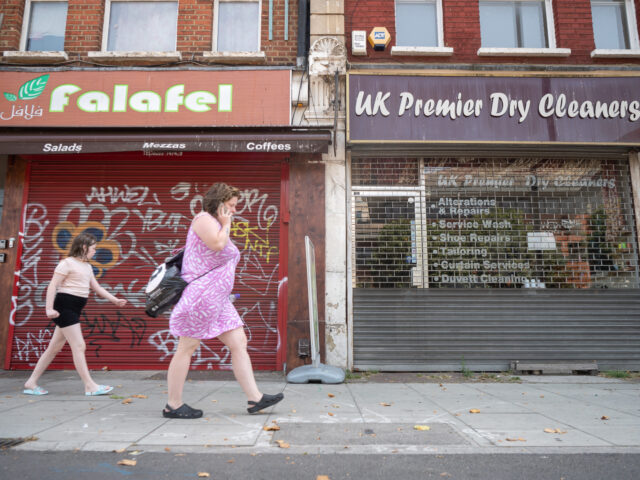Real wages saw their sharpest decline on record in Britain when considering inflation, the Office for National Statistics revealed on Tuesday.
Regular pay, which excludes additional forms of salary, such as bonuses, fell by an average of 3.7 per cent in real terms in the three months up to May, representing the largest decline since such records began in 2001, the ONS said. While real wages fell slightly slower in May than in April, 3.9 to 4.5 per cent respectively, it was still worse than any other time recorded.
While regular pay wages actually increased by 4.3 per cent in the three months to may, however, this was eliminated by the increasing cost of living.
Inflation also hit a new 40-year-high in May of 9.1 per cent, with forecasts predicting further rises into the Autumn when the energy price cap is expected to be lifted once again. In effect, while wages rose, the cost of things that people have to buy to live rose so much higher at the end of the period people were effectively worse off.
“Following recent increases in inflation, pay is now clearly falling in real terms both including and excluding bonuses,” said David Freeman, head of labour market and household statistics for the ONS.
Meanwhile, inflation at the grocery store has also hit its highest level since the 2008 financial crisis, with food inflation rising to 9.9 per cent this month. In real terms, the average family can now expect to pay £454 more per year at the supermarket, with the cost of milk, butter and pet food seeing the sharpest increases.
The latest increase in supermarket inflation was spurred by budget providers such as Lidl and Aldi hiking prices by over 11 per cent. The Guardian reported.
The head of retail and consumer insight at the analytics firm Kantar said: “Grocery prices continue to soar to near record-breaking heights and have jumped by another 1.6 percentage points since last month. This is the second-highest level of grocery inflation that we’ve seen since we started tracking prices in this way in 2008 and we’re likely to surpass the previous high come August.
“All this means that people will be feeling the pinch during our first restriction-free summer since 2019. Taking a barbecue as an example, buying burgers, halloumi and coleslaw for some alfresco dining would cost you 13%, 17% and 14% more than it would have this time last year.”
Follow Kurt Zindulka on Twitter here @KurtZindulka

COMMENTS
Please let us know if you're having issues with commenting.